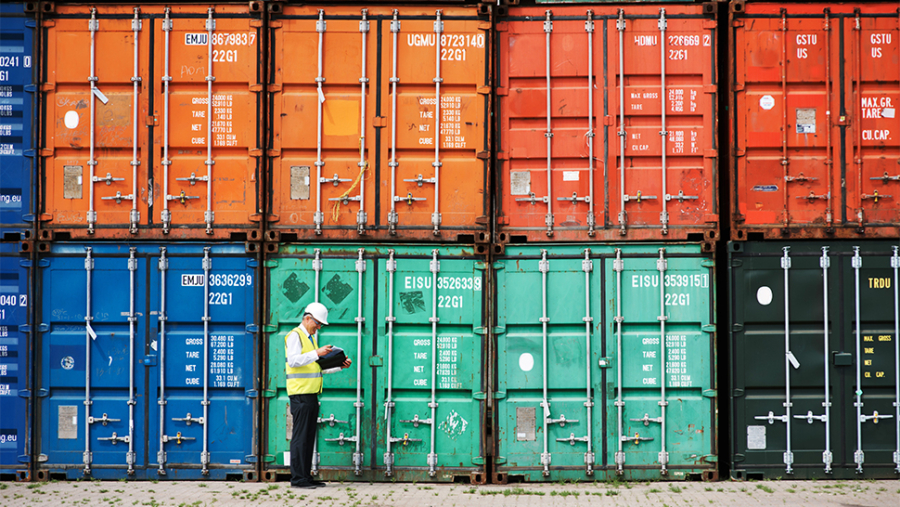

Nicolas Groffman (HCR) and Sean Turner (Menzies)
Negotiations for the Trade and Cooperation Agreement (TCA) between the UK and the EU went down to the wire, finally being agreed on 24 December 2020. This took effect from 1 January 2021, just seven days later.
The TCA was widely promoted as enabling “tariff-free and quota-free” bilateral trade between the UK and EU. Yet, as many businesses will already be acutely aware, the reality is not so straightforward. If goods satisfy relevant origin rules contained in the TCA, they are eligible for preferential tariffs. Where goods do not meet the rules of origin, third country tariffs apply. This means that if a product is made in China, shipped to the UK, and then resold in the EU, it is dutiable. There is also the added complication that the UK must now be viewed as Great Britain and Northern Ireland, where Northern Ireland, for now, remains part of the Single Market and so still benefits from tariff-free trade with the EU.
Anyone trading with the EU will want to know what the relevant origin rules are and whether their goods comply? The complexity around this question is not helped by the jargon used. Words like “obtained” and “originating” take on counter-intuitive meanings, as explained below.
Rules of origin
The rules of origin vary depending on the type of product and its commodity code. The relevant rules may:
- require that specific processes are carried out
- impose a maximum threshold on non-originating materials
- require that certain products fall under different tariffs.
Where a product must not exceed a specified percentage of “non-originating” material, EU materials used in UK products and vice versa count as “originating”. This is known as the “cumulation of origin”. Materials originating in third countries used in UK or EU manufactured goods will not count, and tariffs will apply if these exceed the applicable threshold. For example, if you manufacture photo frames in the UK with glass from the US, the glass is from a third country. Tariffs may apply if the glass exceeds 50% of the value of the finished product.
Originating products
Originating products are eligible for preferential tariffs under the TCA. A product is “originating” if it is either:
a) wholly obtained (a term which is explained below) or
b) has had substantial processing or value added in the UK, even if it has been produced with materials from outside the EU or partially processed elsewhere.
“Wholly obtained” goods are exclusively produced without using materials from any other country. The goods cannot have been altered in another country, apart from certain minimal processes to keep them in good condition. Examples of wholly obtained goods include minerals extracted from the soil or live animals born and raised in a single country.
Goods are “substantially transformed” if they undergo specific processes or work carried out results in a change of classification. The requirements are incredibly detailed and vary considerably between products. If you trade in more than one type of product, however similar they may be, it is crucial to check the rules for each product.
Twice the tariffs
Where finished goods from a third country (e.g. China) are subject to tariffs on import to the UK, further tariffs will be due if these are then exported to the EU. Businesses have also been required to pay tariffs twice on finished goods which originate from the EU itself.
The problems that Marks and Spencer has encountered with its famous Percy Pigs have been widely reported. The sweets are manufactured in Germany, imported to the UK, and then exported to stores in the EU. M&S reported that they were charged tariffs on re-importing the goods into the EU even though they were manufactured in the EU.
The EU’s position is that goods which leave the EU and re-enter from the UK will be considered as “non-originating” products on re-entry to the EU. This means that these goods are not eligible for preferential tariffs and will be subject to Most Favoured Nation (MFN) tariffs and quotas. It is not clear where the legal basis arises for the EU’s position, yet so far, the UK has not challenged the legality of the EU’s unilateral declaration.
Under the TCA, “cumulation of origin” only applies where sufficient processing has taken place. EU-originating materials which are sufficiently processed in the UK are considered originating, and therefore tariff-free. The EU’s approach is that if finished products are exported to the UK and no further work is carried out, they are not substantially transformed. Therefore, the goods are classified as non-originating.
It is not apparent how goods can be considered to originate from a fictitious third country. Many British retailers who use the UK as a distribution hub are being caught out by this approach and are lobbying for clarification.
Top tips for trading with the EU
- Find out the relevant rules of origin.
- Assess whether it makes commercial sense to prove origin.
- Consider whether business operations can be adapted to save on tariffs.
This article was co-written by Nicolas Groffman, Head of International at HCR, and Sean Turner, Senior VAT Manager at Menzies.










